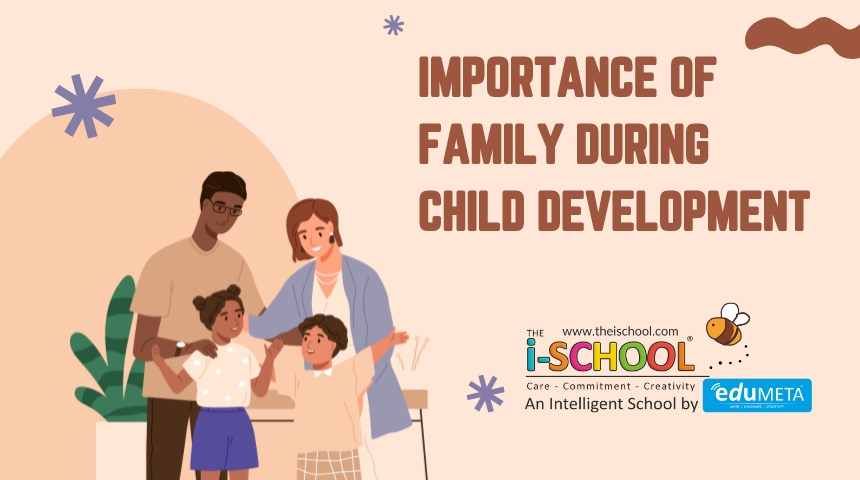Importance of Family During Child Development

Family plays a crucial role in the overall development of a child. The family environment provides the primary context for a child’s emotional, social, cognitive, and physical growth. A supportive and nurturing family can have a profound and lasting impact on a child’s well-being and future success. Here are several key reasons why family is essential during child development.
1. Emotional Support and Security
Sense of Belonging: A family provides a child with a sense of belonging and security. This emotional foundation is critical for healthy development, as it fosters a sense of safety and confidence.
Emotional Regulation: Children learn to recognize, express, and manage their emotions within the family setting. Supportive family relationships help children develop emotional resilience and the ability to cope with stress.
2. Socialization and Interpersonal Skills
Role Models: Family members serve as primary role models for children. Through observation and interaction, children learn social norms, values, and behaviors.
Communication Skills: Family interactions help children develop communication skills. They learn how to express themselves, listen to others, and engage in meaningful conversations.
3. Cognitive Development and Learning
Early Education: Family is often the first source of education for children. Parents and caregivers teach fundamental skills such as language, numbers, and problem-solving through daily activities and play.
Encouraging Curiosity: A supportive family environment encourages curiosity and a love for learning. Families that engage in educational activities, such as reading together or exploring new interests, foster cognitive development.
4. Moral and Ethical Development
Values and Ethics: Families instill values, ethics, and a sense of right and wrong in children. These moral foundations guide children’s behavior and decision-making throughout their lives.
Character Building: Through family interactions, children learn important character traits such as honesty, responsibility, empathy, and respect for others.
5. Physical Health and Well-being
Healthy Habits: Families play a crucial role in establishing healthy habits. From nutrition and exercise to sleep routines, families influence children’s physical health and well-being.
Safety and Care: Families ensure that children are safe and cared for, providing basic necessities such as food, shelter, and medical care.
6. Encouragement and Motivation
Support System: A supportive family provides encouragement and motivation, helping children set and achieve goals. Positive reinforcement from family members boosts a child’s self-esteem and confidence.
Overcoming Challenges: Families help children navigate challenges and setbacks. With family support, children learn to persevere and develop problem-solving skills.
7. Cultural and Identity Formation
Cultural Heritage: Families pass down cultural traditions, languages, and customs, helping children develop a sense of identity and belonging.
Self-Identity: Through family relationships, children form their self-identity. They learn about their heritage, values, and the unique qualities that make them who they are.
Conclusion
The family is the cornerstone of a child’s development, influencing every aspect of their growth and well-being. Emotional support, socialization, cognitive development, moral guidance, physical health, encouragement, and cultural identity all stem from the family environment. A nurturing and supportive family can significantly enhance a child’s ability to thrive and succeed in life.
At eduMETA THE i-SCHOOL, we recognize the critical role families play in child development. We work closely with families to create a collaborative and supportive learning environment that fosters the holistic growth of every child. By valuing and strengthening family connections, we aim to provide the best possible foundation for each child’s future success.
